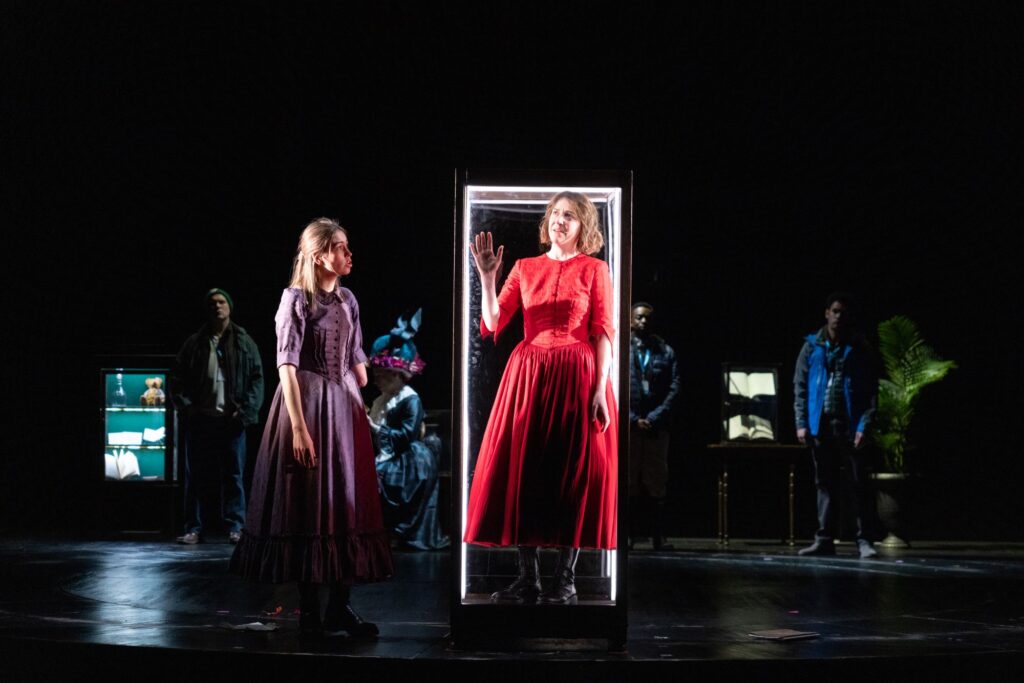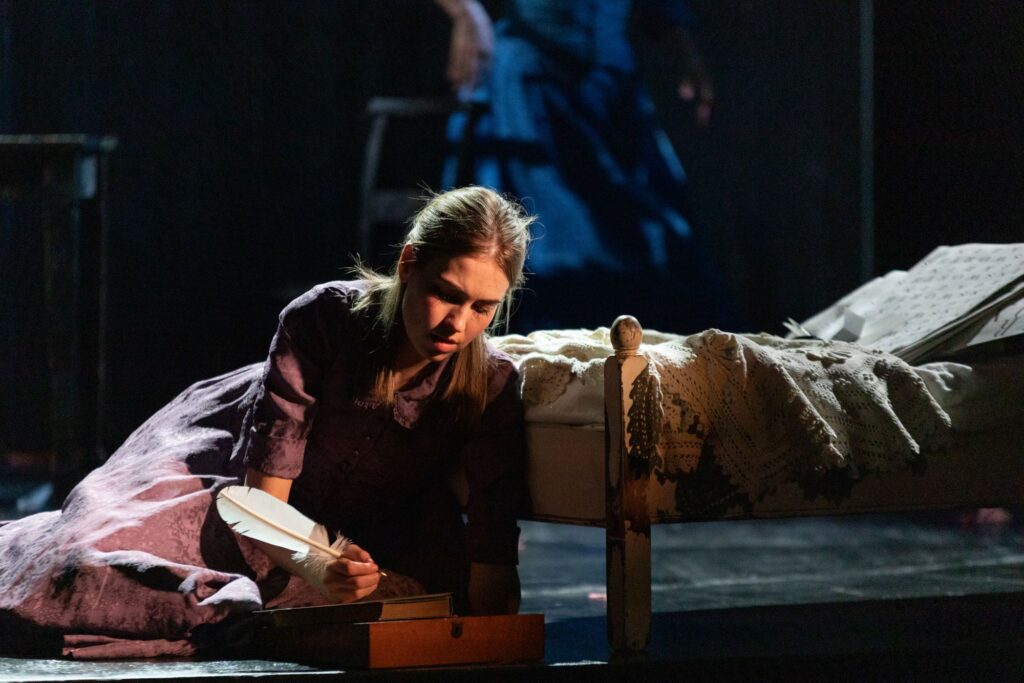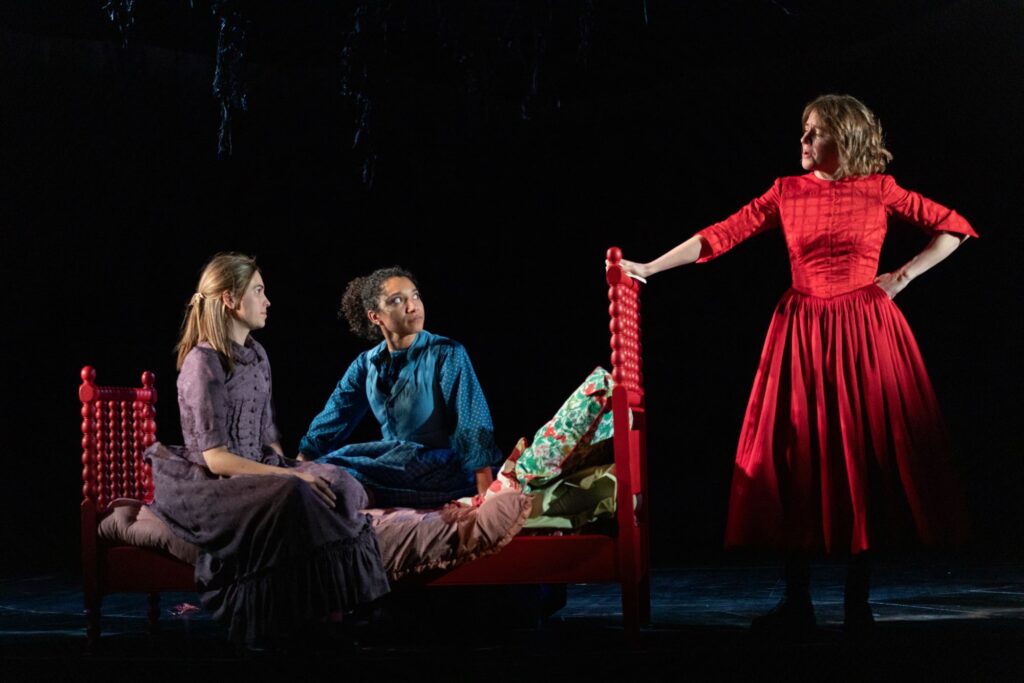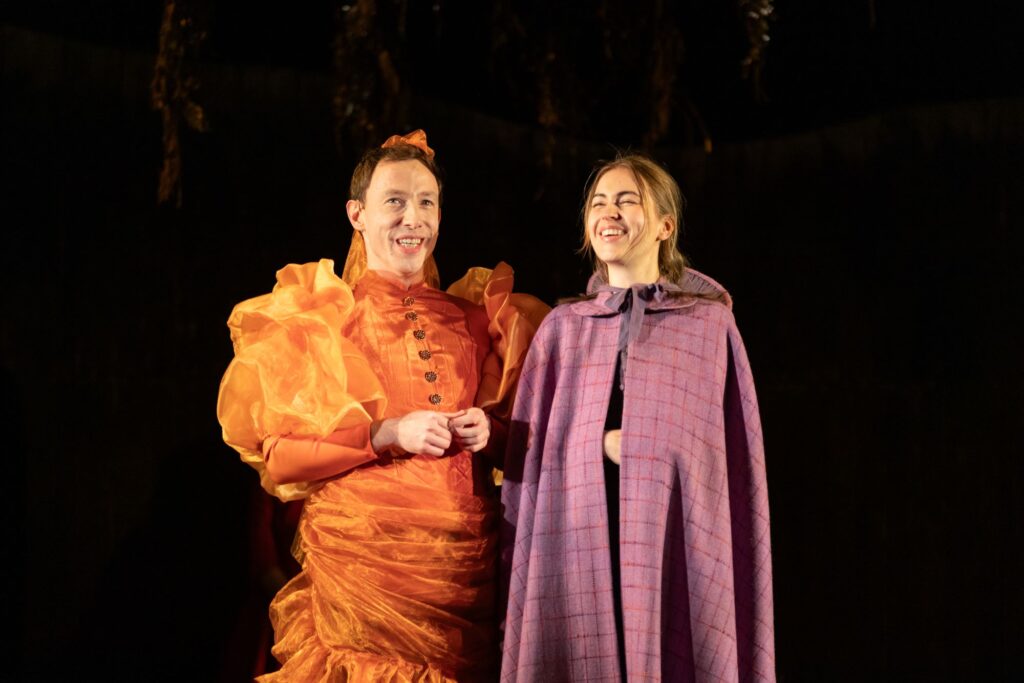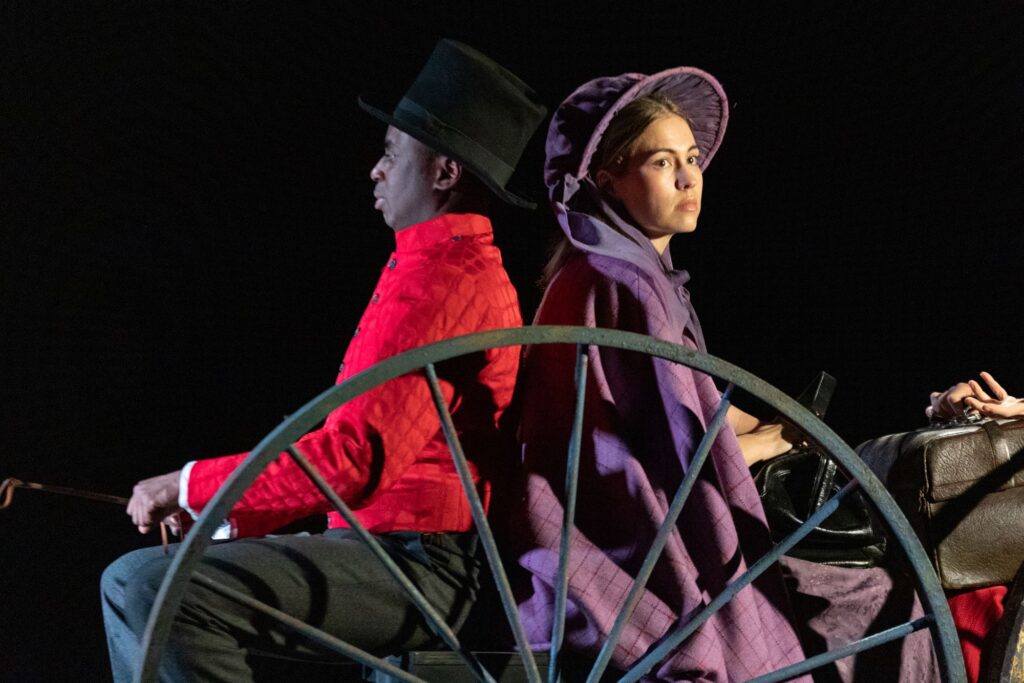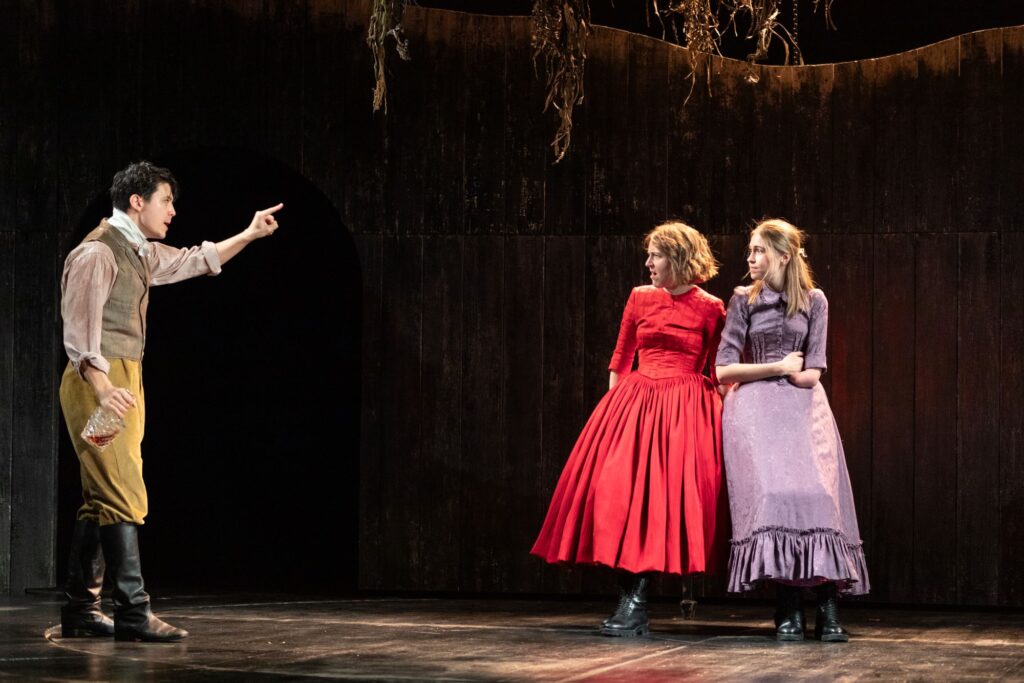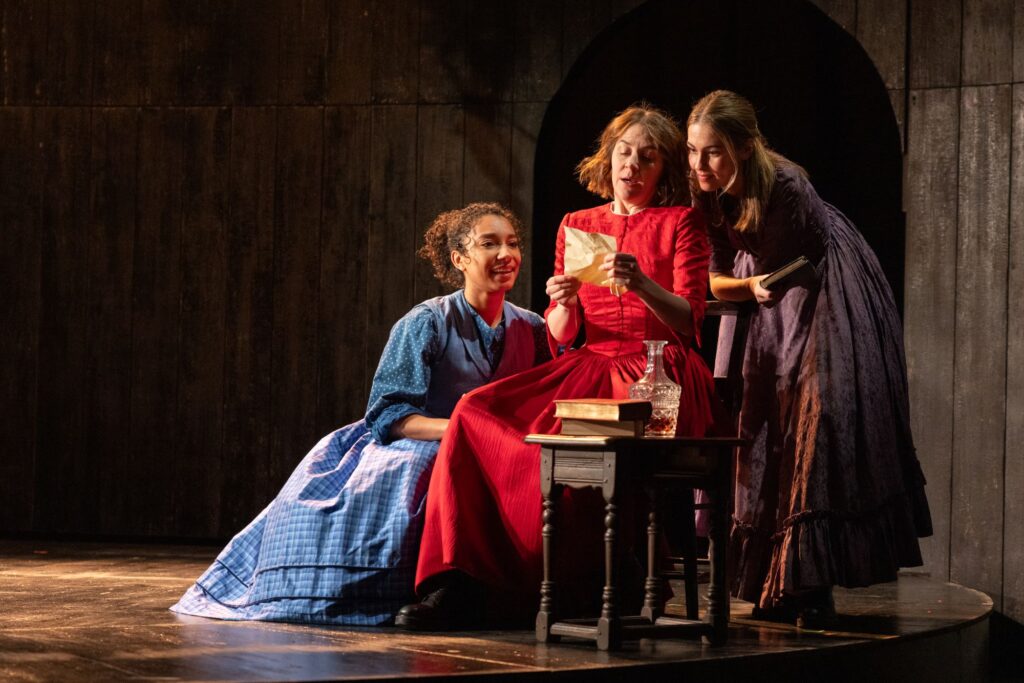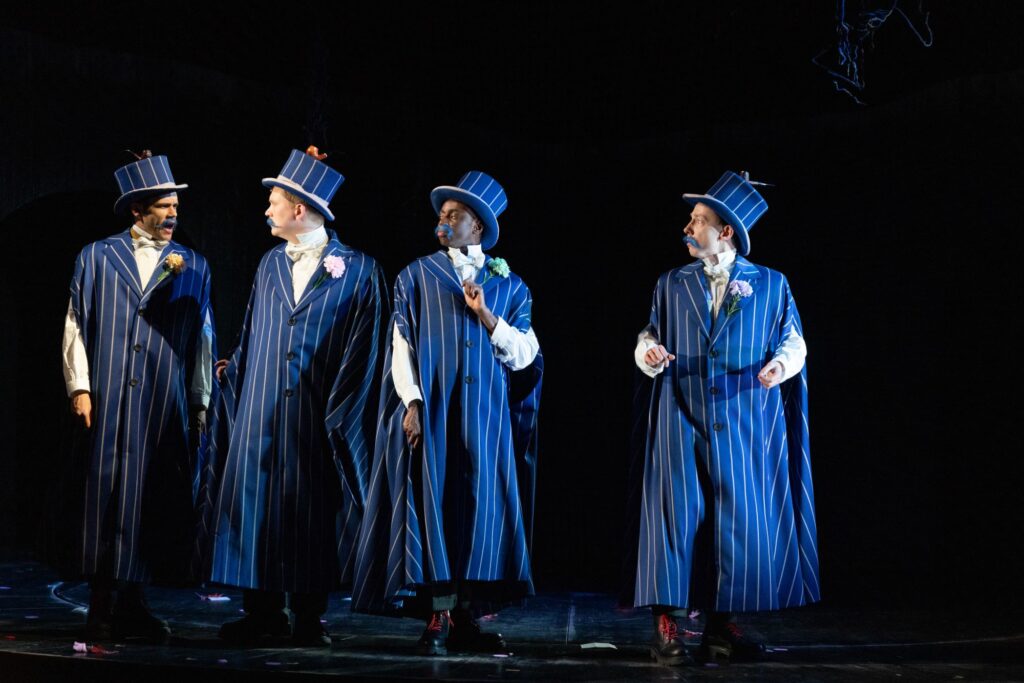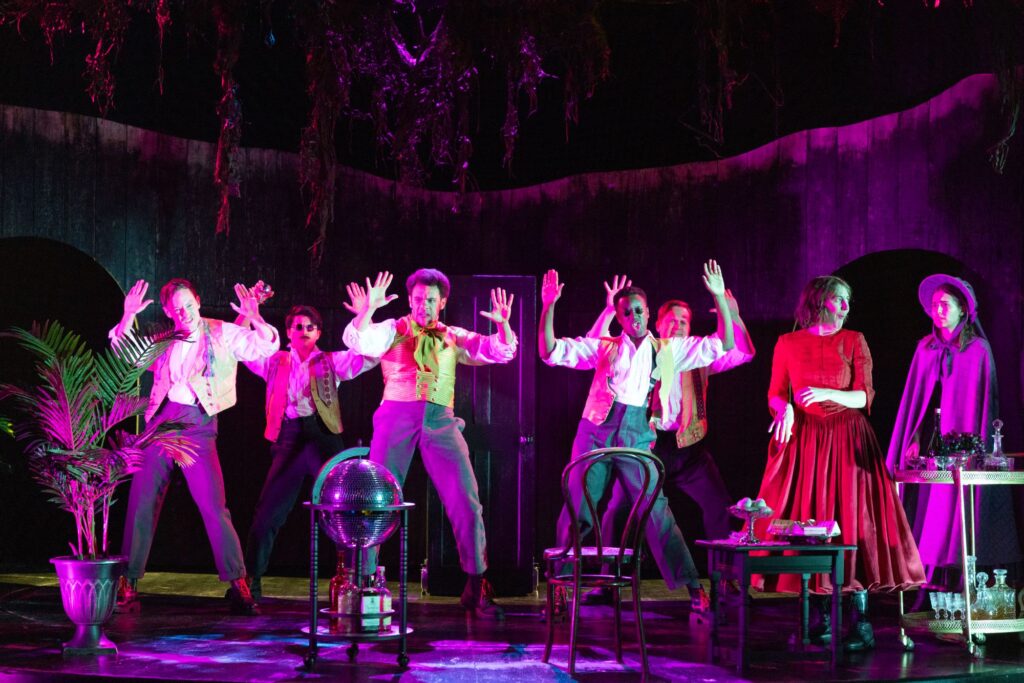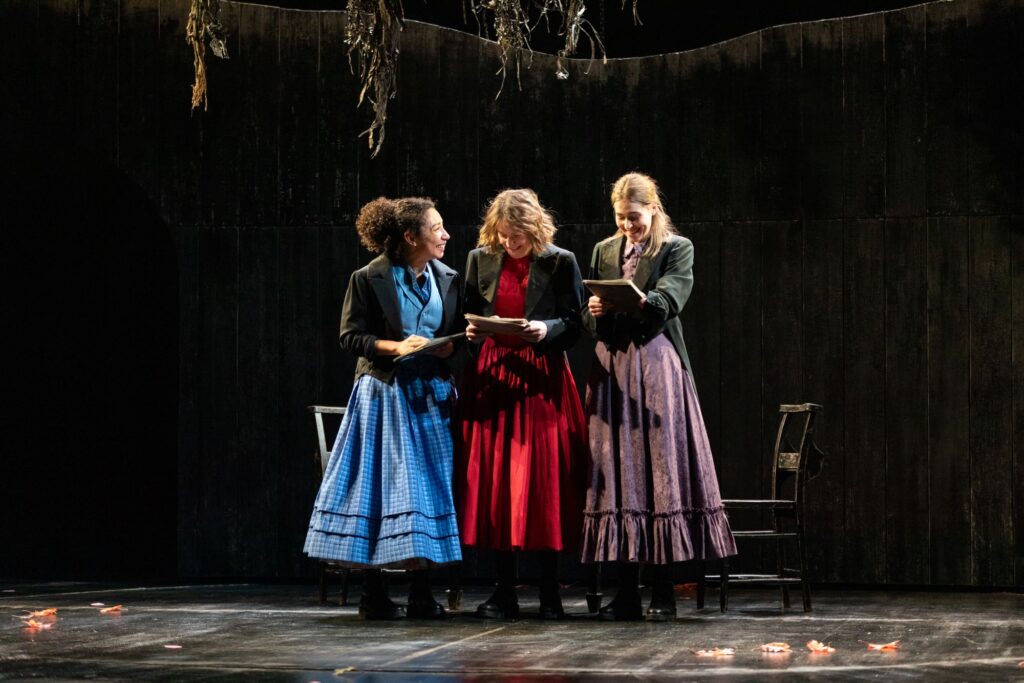
How might the Brontë sisters have sounded and behaved if they’d been equipped with a 21st Century mindset?
Sarah Gordon’s award-winning play, premiered at the National Theatre in a co-production with Northern Stage, directed by the latter’s Natalie Ibu, takes that unspoken question and runs with it to hilarious effect.
Thus you get Victorian women speaking out like their modern counterparts.
Governessing, advises Charlotte Brontë, is “really shitty work”, while the poet laureate, Robert Southey, is deftly put in his place.
This by Emily Brontë on hearing Southey’s reply to the letter sent by older sister Charlotte soliciting his opinion of some of her poems.
“Literature cannot be the business of a woman’s life, and it ought not to be,” opined Southey in his real-life letter of 1837.
Emily (in this 2020s retelling): “He’s a bellend!”
Charlotte: “He is the Poet Laureate!”
Emily: “He’s still a bellend.”
- Read more: Brontë as not taught in schools
- Read more: Wor Bella set to score at the Theatre Royal
You’ll have gathered that Gordon’s bracing middle finger salute to Victorian patriarchy doesn’t chime with what you might have learned in school.
It’s certainly at odds with the note on the back of the paperback edition of Elizabeth Gaskell’s famous 1857 biography, The Life of Charlotte Brontë, that I had at uni.
“Charlotte Brontë,” it states, “was by situation and temperament a recluse, with an almost paranoid desire for self-effacement…”
That’s not the woman played with evident relish by Gemma Whelan who strides towards a stage decked out as heathery moorland, pausing only to demand of audience members their favourite Brontë novel.
Her own Jane Eyre is the answer she’s seeking, and will most often get, although Emily’s Wuthering Heights will give it a run for its money.
Charlotte, in the realm of the play (and as history tells us), is the most determined to be published. She it was who suggested the sisters skirt prejudice by adopting male pseudonyms – Currer, Ellis and Acton Bell – and submitted their collected poems to publishers to pave the way for future novels.
Emily, fierce and private, isn’t happy about that because Charlotte found her poems and sent them off without asking her first.
Brought to life by Adele James, Emily’s the one who can read Charlotte like a book and occasionally slaps her down. “Hypocrite! You sound like the pompous tw*t who wrote that letter!”
And she throws a bucket of water over brother Branwell (James Phoon), the volatile aspiring painter who hollers for “Daddy!”
“Be quiet,” retorts Emily. “He’s praying.”
But the play title refers not to these but to youngest sister Anne, played by Rhiannon Clements.
She’s the underdog, the quiet one, the one dismissed by Charlotte as “a mouse” for professing not to care what people say of her or the novel she knocked out under Charlotte’s nose, thereby putting it out of joint (Mrs Gaskell did say she had a large one).
The thread running through the play is that Charlotte knows she’s the best writer and always has been and everyone knows it.
Imagine her reaction, then, when of the sisters’ first novels, hers is the only one publishers reject. Comedy gold! Although in this telling she quickly responds with Jane Eyre, brushing aside accusations that she stole the plot of Anne’s Agnes Grey.
There are men in the play but they’re all pretty awful, the literary establishment characterised as a posse of braying nincompoops with big moustaches and Sherlock Holmes pipes atop their toppers.
And, as if to rub it in, the only truly awful woman, Mrs Ingham, who engages Anne as governess to tame her impossible brats, is played by a man, Nick Blakeley, who clearly has a lovely time (and also turns up later as a rather creepy Mrs Gaskell).
There are plenty of good visual jokes, mostly the fruits of a revolving stage that is also due to relocate to Newcastle when the production opens here in the summer.
My favourite scene involves the trip by stagecoach – make that slowcoach – from Haworth to London undertaken by Charlotte and a reluctant Anne. Symbol of all that was thrown in women’s way, it speeds up the second they alight. Priceless!
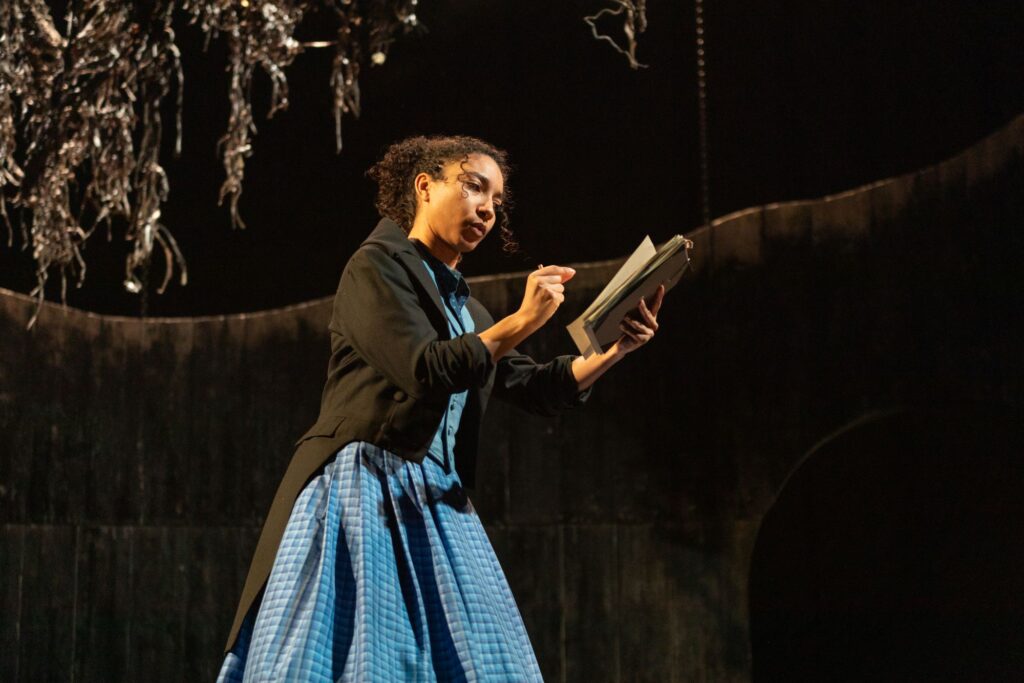
The tragedy underlying the comedy, of course, is that the younger Brontës all died within eight months of each other, none living much beyond 30. Charlotte soldiered on for a few more years.
For all its rollicking rudeness, the play is an affectionate send-up. The Brontë legacy, secure enough to take it, will be strengthened if it generates new readers.
As for Sarah Gordon. One to watch, clearly.
Underdog: The Other Other Brontë is at the National Theatre until May 25 and at Northern Stage, Newcastle, from June 7 to 22 with tickets already on sale via the website and box office on 0191 230 5151.



